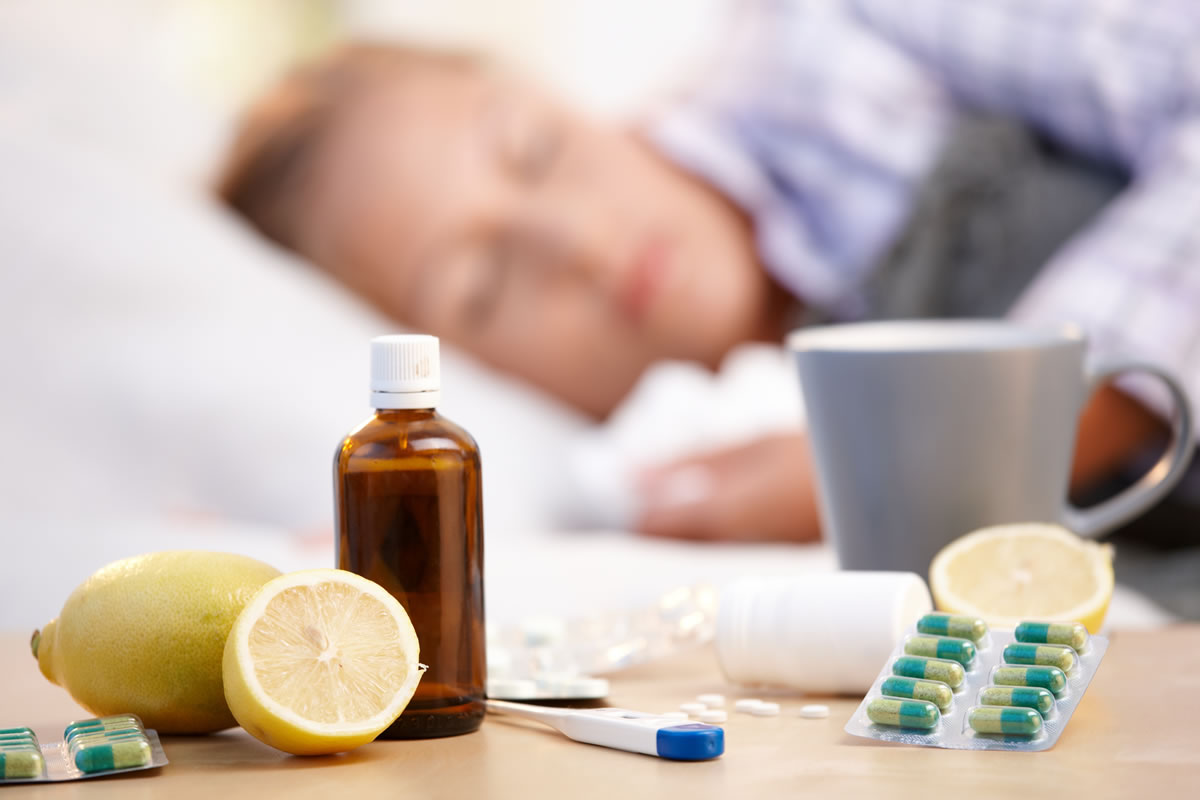Cold and flu season presents a wide range of challenges. You may face long, sleepless nights with a cough and challenging workdays with a stuffy head and running nose. There are a number of remedies you can try for these illnesses, but these aren’t without hazards of their own. Some of the solutions that are meant to improve your health could end up damaging your teeth. Learn what to watch for and how you can combat these hazards, so you can maintain dental health even as you’re fighting off that pesky bug.
Decongestants
Decongestants help you battle a runny nose by drying things out. Unfortunately, this can cause the opposite problem and ultimately leave things too dry. Dry mouth is a common side effect of decongestants. This reduced saliva flow can promote bacterial growth in the mouth. This in turn contributes to problems like gum disease and tooth decay.
Fortunately, decongestant use is usually temporary. You can take steps to combat dry mouth while you’re taking these medications to help prevent any long-term problems. Drink lots of water when you have a cold to stay hydrated and keep your mouth lubricated. You can also stimulate your body’s saliva production by sucking on cough drops or sore throat lozenges — just be mindful of the sugar content. This hazard is discussed below.
Cough Drops and Sore Throat Lozenges
Cough drops and sore throat lozenges are made to dissolve slowly. This means you’re holding them in your mouth for an extended period as the ingredients gradually settle on your teeth, mouth, and throat. Some of the medicinal ingredients may help your symptoms, but others are included purely for flavour.
Sugar is a common ingredient in these products, and it’s a natural enemy to healthy teeth. If left to settle, the sugar can lead to tooth decay. The best option is to choose sugar-free cough drops and lozenges. If you do use sugary products, make sure you brush your teeth regularly to keep your teeth clean. Emphasize the importance of this activity to children as well. Though dentists can fix cavities in children, it’s an experience best avoided if possible.
Cough Syrup and Liquid Cold Medicine
Like cough drops, cough syrups and other types of liquid cold medicine often contains sugar. These thick, sticky liquids can easily leave a coating on your teeth that will contribute to tooth decay. Some of these medications may also contain alcohol. The alcohol reduces your saliva production, which makes it more difficult to wash that coating away.
When possible, choose pills or gel-caps in place of liquid medication. This eliminates much of the threat to your teeth. If this isn’t an option, take your medicine before a meal. Eating and drinking will increase saliva production to help wash away the sugar. Brush thoroughly afterward to make sure teeth are clean, so you’re effectively combating the hazards of the sugary medicine.
Hot Tea
Tea is a common home remedy for colds. The hot beverage can soothe your throat, while other compounds in the tea might ease an upset stomach, help fight a headache, or otherwise ease your symptoms. While hot tea is better than soda and other sugary drinks, it’s not without its dental dangers. Tea can contribute to tooth erosion. Black tea is particularly corrosive, having a more significant effect on the tooth than green tea. If you add sugar or honey to your tea, this will promote tooth decay as well.
To combat this, you may want to consider drinking through a straw, as this minimizes the drink’s contact with your teeth. Using less sweetener will help as well. You don’t necessarily have to dump your tea, but do make an effort to brush more often when you’re drinking beverages like this. Keep plenty of water in your diet as well.
Orange Juice
Orange juice and other citric beverages soften your tooth enamel. The acidity can be damaging to your teeth if it’s not addressed. However, as with tea, there are many benefits to consuming these types of drinks when you have a cold. Orange juice is rich in vitamin C, which can help you boost your immune system and battle the illness more effectively.
The best solution is to consume your orange juice all in one sitting, so you can brush your teeth easily when you’re finished. Sip water throughout the day and stick to these citrus drinks only at mealtime. A juice that’s fortified with calcium can help support tooth health and strengthen the enamel, helping to balance some of the potential hazards of these drinks.
Protect your teeth during cold and flu season by staying on top of your dental health at all times. Brush more frequently, drink lots of water, and ditch that toothbrush once you’re feeling better for a fresh, clean start after you beat that cold.





 December is finally here, and if you’re not already hyped about the holidays, you’re about to […]
December is finally here, and if you’re not already hyped about the holidays, you’re about to […]
